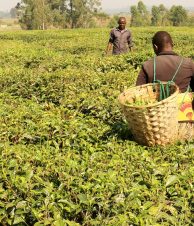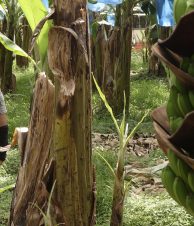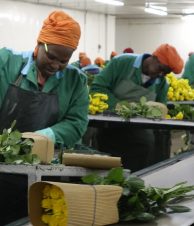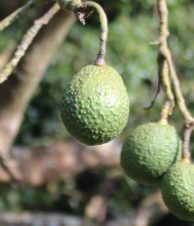Together with local and global partners, IDH is implementing the Living Wage Advocacy Initiative (LIWIN) pilot project in Ecuador and Ghana to establish living wage benchmarks that can be used to improve banana workers’ future wage negotiations and minimum wage setting interventions in the sector.
In this project, we aim to establish living wage benchmarks that can be used for future wage negotiations and minimum wage setting interventions in the banana sector for each country. We engage local and global stakeholders, throughout the course of the project to ensure that the calculations of the cost of living accurately reflect workers’ local circumstances, as well as to raise awareness on the wage gap and to mobilize stakeholder awareness and understanding of the issue.
The first steps to tackle this issue is to collect high quality and accurate figures on the cost of living in the banana production areas in Ghana and Ecuador and to highlight the gaps between the current and living wage.
Over the past decades, the circumstances in the banana supply chain—especially in regard to labor practices and environmental degradation—have steadily improved. Yet, it is still common that farmers and workers in many banana-producing countries receive wages that are below the living wage standard, making it hard for them to make their way out of poverty. A substandard wage negatively impacts workers’ wellbeing, as well as the sustainability of the banana supply chain as a whole.
IDH is a strategic partner of this project and co-funds around 40% of its overall costs.
The living wages issue emerged as one of the key topics in the Sustainable Initiative Fruit and Vegetables (SIFAV) since its launch in 2012. At that moment the key challenge that actors along the chain faced was that too many different (and divergent) definitions of what a living wage includes were used by civil society organizations, sustainability standards and other stakeholders. This created confusion among farms owners, producers and buyers. The need of a common and organized approach to define the concept in detail was therefore expressed.
IDH welcomed the initiative taken by some of the ISEAL members to organize themselves as a working group to align their different approaches around a common living wage definition. The Anker methodology was adopted by the group that later was named the Global Living Wage Coalition.
In 2015, ISEAL presented the new living wage definition to the SIFAV General Assembly and this stimulated and convinced leading private partners to work with it and to test it in their supply chains. As a result, two projects were put forward by SIFAV members and after discussing the ideas and the project approaches, IDH decided to co-fund this program.
IDH is interested in supporting different approaches to work towards the payment of living wages in different sectors, and in producing and sharing learnings on how companies and the private sector can effectively approach this often complex issue with all its partners.
- Estimating the living wages for workers in banana production areas in Ghana and Ecuador;
- Creating common understanding by also informing governments and trade unions/workers about the cost of living to enable them to work with these data in future negotiation processes;
- Raising awareness and increase transparency on the issue of living wages in the banana sector.
The World Banana Forum (WBF) and Fairtrade International are the implementing partners of this project. They work closely with the Global Living Wage Coalition (GLWC) for the realization of the benchmark studies in both countries and carry out the advocacy activities in country.
- The study on living wages in Ghana was published in February 2017 and two validation and consultation sessions were held in September 2017. In response to the publishing of the Living Wage benchmark study in 2017, the GAWU and ICU trade unions supported by the IUF and Fairtrade set up an inter-union Living Wage committee to discuss how wages are set.
- The study on the cost of living in Ecuador was initiated in late 2016 and is currently in its final revision process.
- Follow up activities with local stakeholders are planned in Ghana to continue the discussions on the wages of banana workers;
- When the benchmark study of Ecuador is finalized, a validation session will be held with all relevant stakeholders in the country. The project partners to publish the final report by the end of the year.














